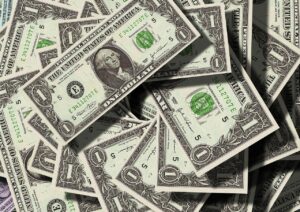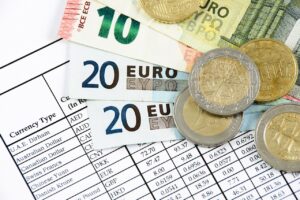
ECB Decides To Go Big With Rate Hike
On Thursday, the European Central Bank announced its first interest rate increase in the continent after more than a decade of negative rates. It finally joined a number of other major central banks that are trying to stamp out the surging inflation in their respective countries.
In recent weeks, the United States, New Zealand, Canada, and Switzerland, amongst others, are some of the global central banks that have hiked their interest rates aggressively. Amongst the 10 big economies in the world, Japan is the only one that has continued with its dovish stance and has not increased its interest rates at all. The central banks have increased the interest rates by 1,140 basis points combined.
Canada and United States
The chief hawk amongst global central banks is the Bank of Canada, which delivered a 100 basis points increase in the interest rate last week that took its policy rate to 1.5%. According to analysts, it is likely to hike the interest rate again, as data on Wednesday showed that inflation in June stood at 8.1%, which is the highest figure recorded in the country in 39 years.
The next most aggressive central bank so far has proven to be the Federal Reserve in the United States. It had already delivered a 75 basis points increase in the previous month and is scheduled to increase the rates once more by 75 basis points in the next week.
Last week’s data had shown a rise in consumer prices in the US by 9.1% in June, which is the biggest annual increase in inflation in over 40 years. This had resulted in expectations of a 100 basis points increase, but the Fed had turned down the possibility.
New Zealand and Australia
Last week, the Reserve Bank of New Zealand hiked its interest rates for the sixth time by 50 basis points, which took it to 2.5%. The rate had last been seen in March 2016. The bank is comfortable with its planned approach to controlling runaway inflation.
As for the Reserve Bank of Australia, it has hiked its rate for three consecutive months to take it to 1.35%. Markets have predicted that the rate will reach 3.5% by the year end. Philip Lowe, the RBA Governor, said on Wednesday that they would continue rising the rate steadily to counter inflation.
Other banks
The first big developed economy to begin the rate hike cycle last year was Norway, which raised its rate on June 23rd by 50 basis points. This is the largest single hike after 2002. The Norges Bank has four policy meetings remaining in the year and it plans on hiking the rate 25 basis points in each.
The Bank of England is also meeting on August 4th when it is expected to hike the interest rate for the sixth time, as inflation hit a whopping 9.4% in June. This time, the hike is expected to be 50 basis points rather than 25 basis points.
The Swiss National Bank (SNB), the Riskbank in Sweden, and the ECB are other banks that have also hiked rates.




